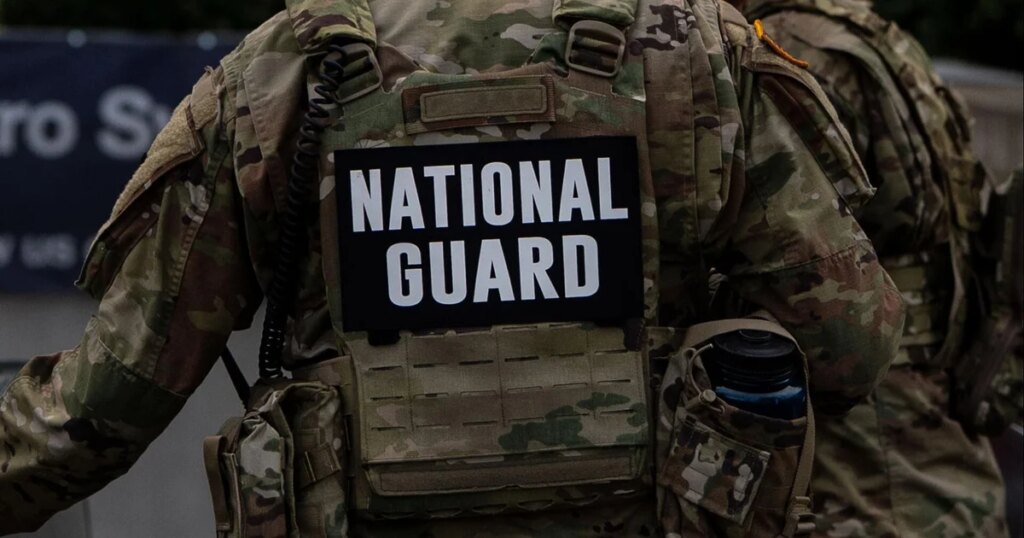Oregon has taken a significant legal step by filing a lawsuit against the Trump administration regarding the deployment of National Guard troops to Portland. This action follows President Trump’s announcement of sending military personnel to protect federal properties amid ongoing protests. Oregon’s Attorney General, Dan Rayfield, asserts that the President lacks the authority to federalize the National Guard while emphasizing the local government’s capability to maintain public safety.
| Article Subheadings |
|---|
| 1) Lawsuit Filed Against Trump Administration |
| 2) Details of the National Guard Deployment |
| 3) Local Officials Respond to Federal Actions |
| 4) Concerns Over Abuse of Power |
| 5) Implications for State-Federal Relations |
Lawsuit Filed Against Trump Administration
The legal action initiated by Oregon is part of a broader resistance against federal intervention in local matters. Led by Attorney General Dan Rayfield, the lawsuit contends that President Trump’s decision to send troops to Portland is unconstitutional. Specifically, the complaint highlights that the President lacks the legal authority to mobilize the National Guard without the state’s consent. In a similar vein, California had previously filed a lawsuit in June concerning the mobilization of troops in Los Angeles. The underlying issue is rooted in the contentious political climate, where state leaders are increasingly questioning federal overreach.
Details of the National Guard Deployment
The deployment of approximately 200 members of the Oregon National Guard is structured to last for 60 days. Secretary of Defense Pete Hegseth authorized this action, citing the necessity of protecting federal properties, particularly in light of escalating protests. The National Guard is expected to focus on areas identified as being at risk of civil disorder. This preemptive move has ignited debates not only about public safety but also about the appropriateness of military presence in civilian matters. State officials have argued that the risks have been overstated.
Local Officials Respond to Federal Actions
Local leaders, including Governor Tina Kotek and Portland Mayor Keith Wilson, have vocally opposed federal troop deployment. Both have stressed that Oregon has the capacity to manage its public safety and maintain order without federal assistance. During a virtual press conference, Governor Kotek stated, “There is no insurrection or a threat to public safety that necessitates military intervention in Portland.” This set of sentiments resonates with many local residents who view the federal action as an overreach and unnecessary escalation.
Concerns Over Abuse of Power
The lawsuit not only challenges the legality of the troop deployment but also raises issues of federal authority. Governor Kotek noted in her statements that she has been communicating with other state leaders such as Gavin Newsom of California and J.B. Pritzker of Illinois, who are facing similar challenges with federal entities in their states. “We are all concerned across our country that this is an abuse of power,” Kotek remarked, stressing the need for states to maintain their governance without federal intervention that could be perceived as political intimidation.
Implications for State-Federal Relations
The ongoing tensions between state leadership and the federal government are indicative of a larger trend affecting U.S. governance. The use of the National Guard in situations that are traditionally managed by local police raises questions about jurisdiction and the limits of federal power. Critics fear that such actions could set a precedent for further federal overreach into local law enforcement. As Oregon and other states navigate this complex landscape, the implications for state-federal relations will continue to evolve, necessitating ongoing dialogue between different levels of government.
| No. | Key Points |
|---|---|
| 1 | Oregon has filed a lawsuit against the Trump administration regarding the deployment of National Guard troops. |
| 2 | The deployment of approximately 200 National Guard members is authorized for 60 days to protect federal properties. |
| 3 | Local officials assert they can manage public safety without federal intervention. |
| 4 | Concerns have been raised regarding the abuse of federal power and having military presence in civilian contexts. |
| 5 | The situation highlights the ongoing tensions between state governments and federal authorities. |
Summary
The legal battle initiated by Oregon signifies a critical juncture in the relationship between state and federal powers, particularly concerning law enforcement and public safety. As local officials assert their capabilities in managing unrest, the federal response raises questions about the appropriateness of military involvement in civilian life. This case could have far-reaching implications not just for Oregon, but for states across the nation grappling with similar issues.
Frequently Asked Questions
Question: What prompted Oregon to file a lawsuit against the Trump administration?
Oregon filed the lawsuit in response to President Trump’s decision to deploy National Guard troops to Portland, arguing that he lacks authority to federalize the National Guard.
Question: How long will the National Guard be deployed in Portland?
Approximately 200 members of the Oregon National Guard will be deployed for a period of 60 days to protect federal properties.
Question: What concerns have local officials raised regarding the federal troop deployment?
Local officials, including Governor Tina Kotek, have raised concerns about the legality and necessity of deploying federal troops, asserting that Oregon can maintain safety without such intervention.


